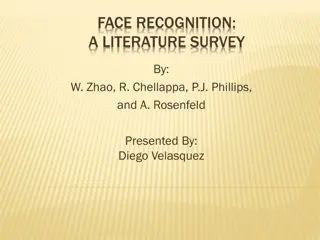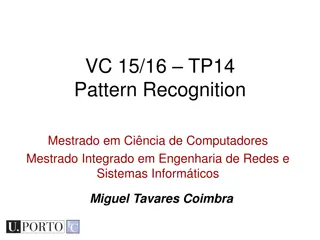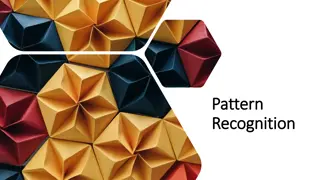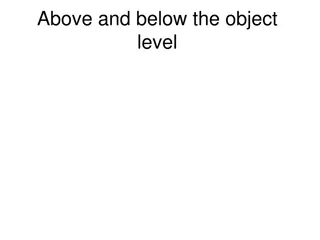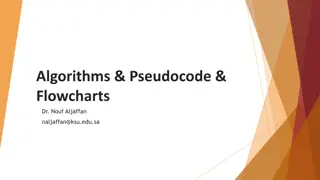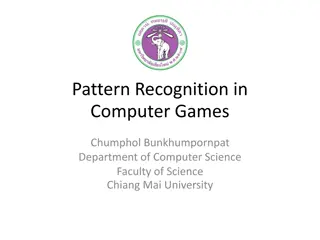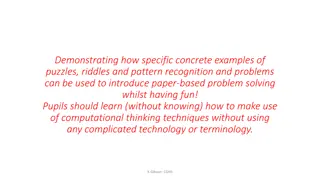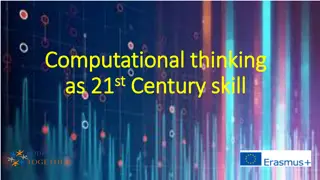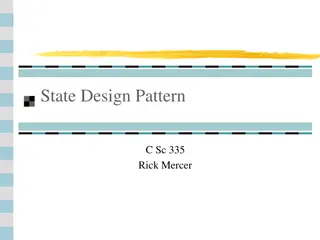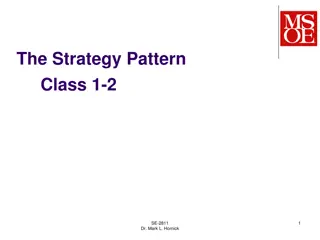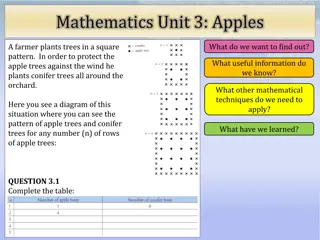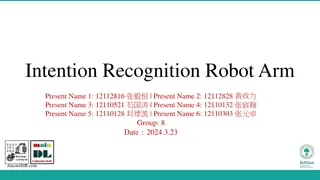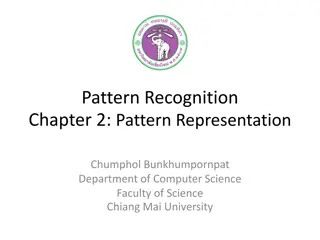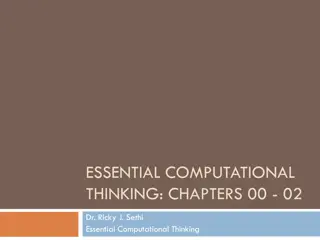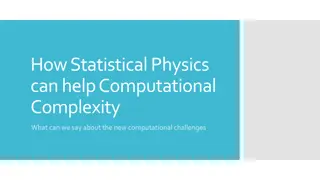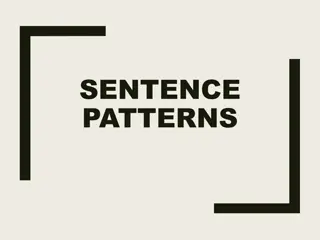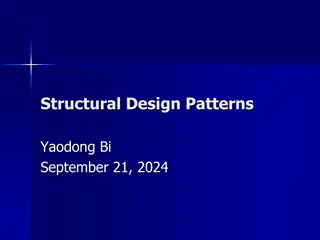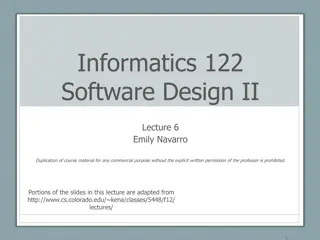Understanding Pattern Recognition in Computational Thinking
Pattern recognition in computational thinking involves identifying common elements, interpreting differences, and predicting based on patterns. It helps simplify complex problems by recognizing similarities and characteristics shared among them. Through repetition and algorithmic processes, patterns are utilized to find solutions to problems that have already been solved before. Various applications such as maps, biometric recognition systems, and data processing rely on pattern recognition to streamline information and facilitate efficient decision-making.
Download Presentation

Please find below an Image/Link to download the presentation.
The content on the website is provided AS IS for your information and personal use only. It may not be sold, licensed, or shared on other websites without obtaining consent from the author. Download presentation by click this link. If you encounter any issues during the download, it is possible that the publisher has removed the file from their server.
E N D
Presentation Transcript
A1 Computational Thinking Skills Pattern recognition assessment content identifying common elements or features in problems or systems identifying and interpreting common differences between processes or problems identifying individual elements within problems describing patterns that have been identified o making predictions based on identified patterns.
Thinking like a computer scientist https://www.youtube.com/watch?v=zdndxMg6L7s&index =2&list=PLcvEcrsF_9zLzxML51z6gkmkBcUZy7eCo
Pattern repetition Repetition allow for a portion of an algorithm or computer program to be done any number of times An occurrence of repetition is usually known as a loop
Pattern recognition This involves removing details until the problem reduces to one which has already been solved What do maps of a town, of the ocean floor, of a country, have in common? What do fingerprint recognition, iris scanning, footprint scanning, text recognition, number plate recognition, have in common?
Pattern recognition We often find patterns among the smaller problems we create. The patterns are similarities or characteristics that some of the problems share. Objectshave . or .


